Corpus Christi Blog
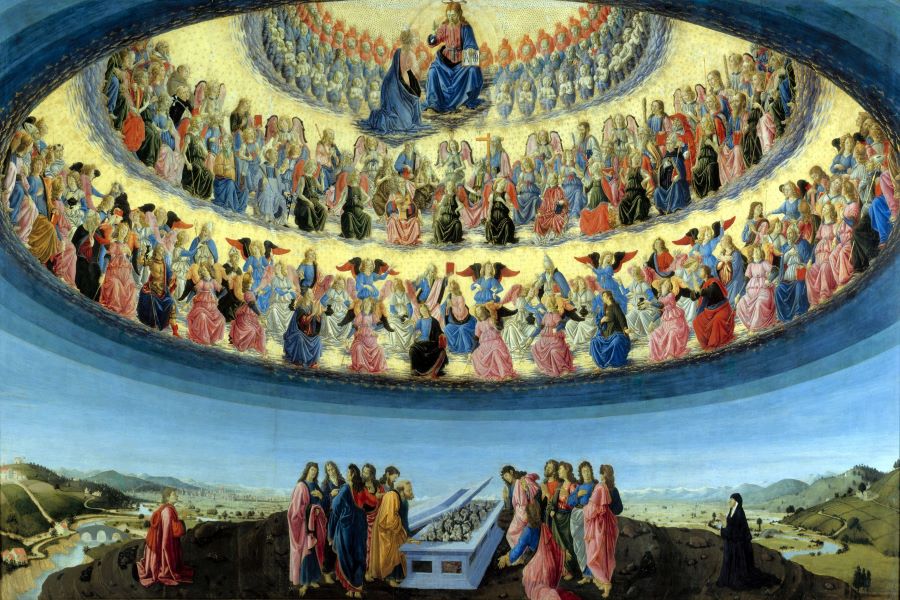
Angels
06-28-2020Weekly ReflectionJen Arnold, M.A. in Theology and CatecheticsYou might not think too much about it, but you are likely aware that we are surrounded by invisible beings called angels. Let’s take a closer look at what angels are and what their role is in our lives and our salvation.
Angels are purely spiritual beings without bodies that still possess intelligence and will. Despite not having a body, each angel is considered an individual just like you or me. Angels were created prior to humanity and are higher than humans in the hierarchy of creation. They are more beautiful, glorious, and perfect than any visible creation. (CCCC #330) It is important to note here that angels are entirely different beings than humans. Sometimes you might hear someone say that their deceased loved one has become their “guardian angel.” While it might be comforting to think that, humans can never become actual angels. Rather, their soul, which is also purely spiritual and not physical, carries on into the afterlife. That being said, you can still be comforted knowing that your loved one’s soul is still close to you, consoling you and praying for you.
READ MORE
Our Father
06-21-2020Weekly ReflectionJen Arnold, M.A. in Theology and CatecheticsToday is Father’s Day and, therefore, a good day to discuss God as our Father.
God the Father is the first person in the Divine Trinity as He is the omnipotent, ever-present Creator of the entire universe. Because of this greatness and grandeur, especially when juxtaposed to the humanity of God in Jesus, God the Father can sometimes seem distant or inaccessible. However, nothing could be further from the truth. Our heavenly Father loves each one of us so much and desires deeply for us to turn to Him in intimate relationship.
READ MORE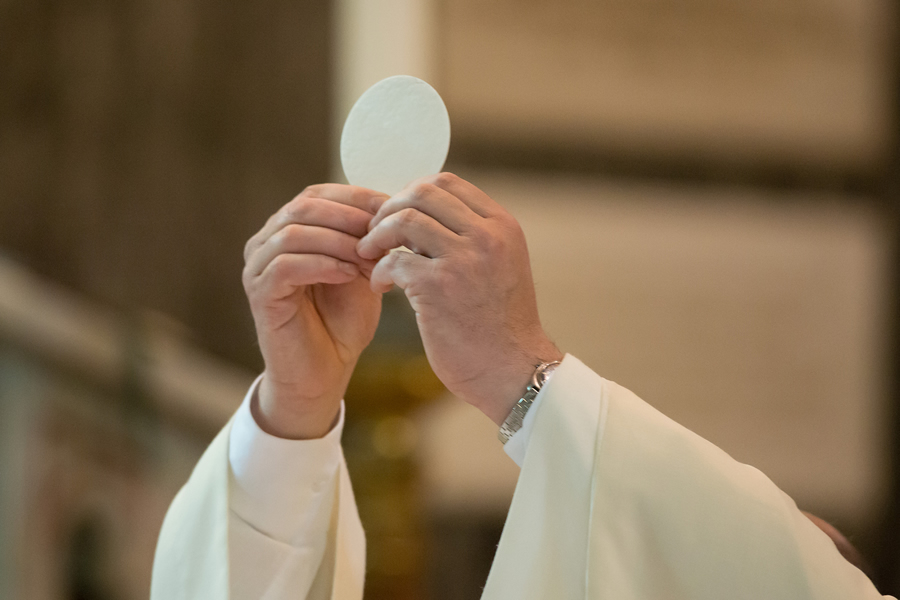
Corpus Christi -- The Body of Christ
06-14-2020Weekly ReflectionJen Arnold, M.A. in Theology and CatecheticsToday is a very special day, indeed, as we celebrate the feast of Corpus Christi, which is, of course, our parish’s namesake.
Corpus Christi literally means the Body of Christ. The Body of Christ can refer to a couple of different definitions that are all equally true. On one hand, the Body of Christ can mean the Church, of which He is the head. Each and every one of us, united under the head, make up the members of His body. However, today we will focus on the Body of Christ as it exists in the Sacrament of the Holy Eucharist.
READ MORE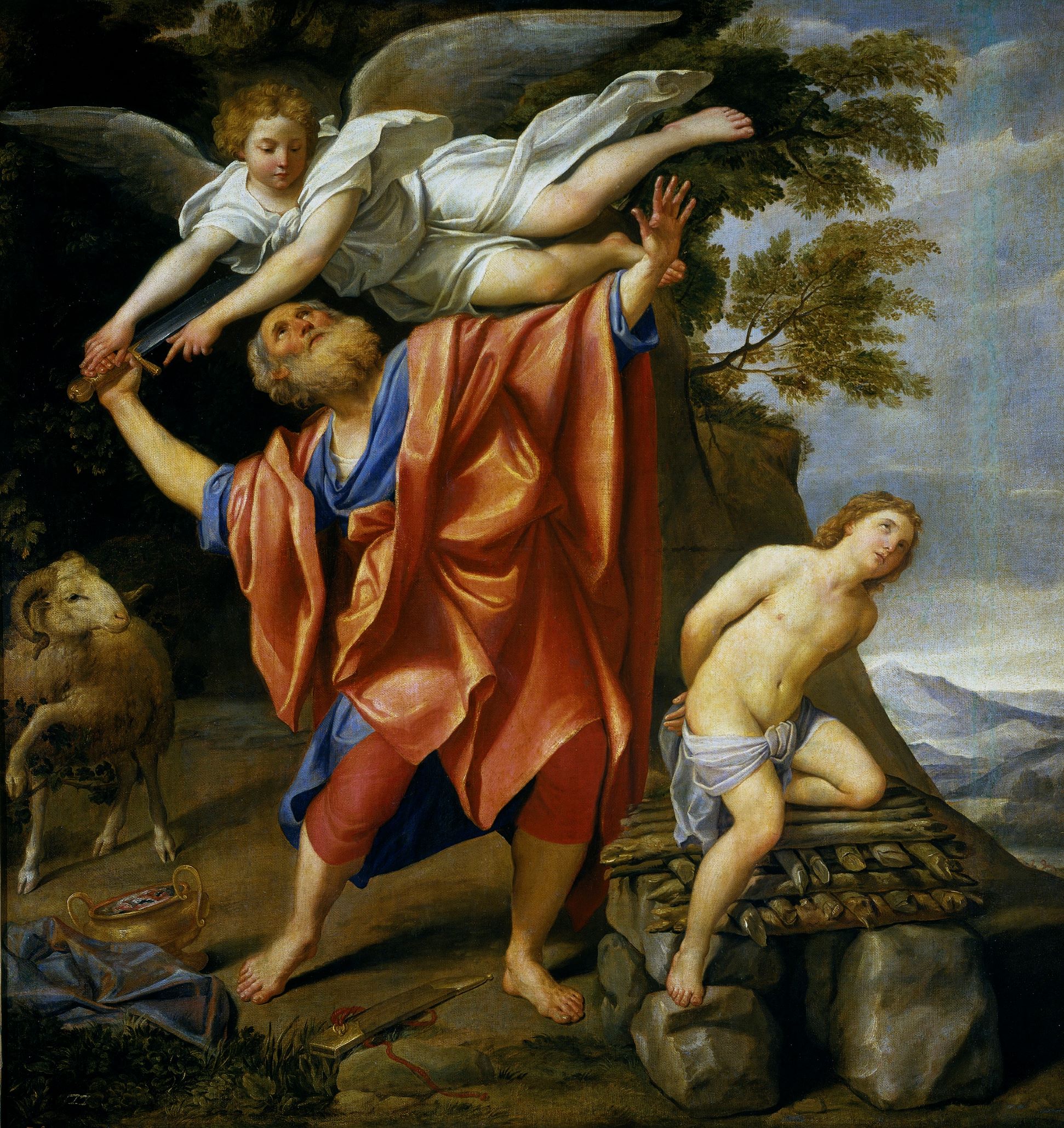
Trust and Obedience
06-06-2020Weekly ReflectionJen Arnold, M.A. in Theology and CatecheticsThis has been an incredibly tumultuous and challenging several months for the world, but also for our parish and our individual families and communities. With the rise in Covid-19 cases, we found ourselves in unprecedented circumstances where we could not lead our lives in a way we normally would or freely visit the places we normally did. Along with that came the closure of our churches. This was a devastating blow for most of us. Catholics do not attend church on Sunday just to hear the Word of God in Scripture followed by a sermon. Catholics attend Mass on Sunday to receive Jesus in His Body, Blood, Soul and Divinity. The Eucharist is our sustenance and the very means by which we allow Jesus to enter into us and change us from the inside out by His grace. To lose our physical access to Jesus so abruptly let our community in a longing pain.
READ MORE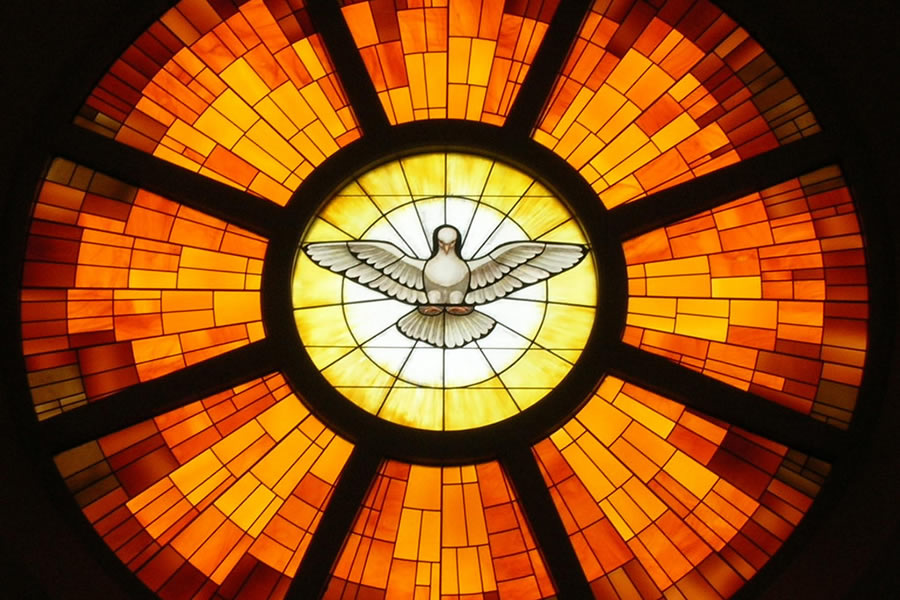
Pentecost
05-31-2020Weekly ReflectionJen Arnold, M.A. in Theology and CatecheticsToday we celebrate the feast of Pentecost and it is, therefore, a good time to reflect a little on how the Holy Spirit works, both in the Church, as well as in our own lives.
“But the Helper, the Holy Spirit, whom the Father will send in my name, he will teach you all things and bring to your remembrance all that I have said to you.” -John 14:26
God knew that after the resurrection and ascension of His Son, Jesus, we were going to need some extra help. While Jesus physically walked the earth, all anyone had to do was listen to Him directly to know what He willed for them. However, when left to our own devices for too long, we humans tend to muck things up. We received the gift of the Holy Spirit on Pentecost in order to continually guide and advise us on the Father’s will for the Church as a whole and for individuals as well.
READ MORE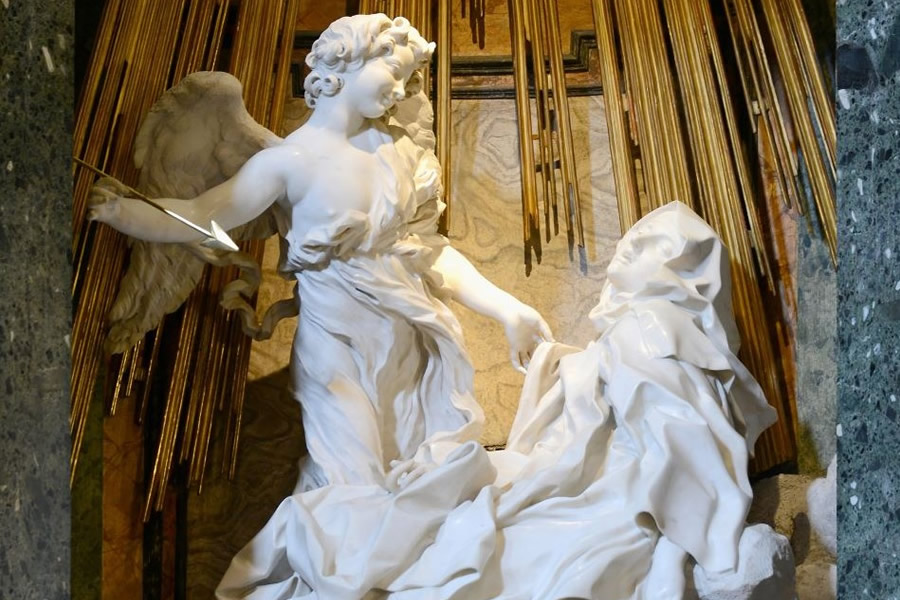
The Nine Grades of Prayer - 8th and 9th Grades
05-25-2020Weekly ReflectionJen Arnold, M.A. in Theology and CatecheticsThis week is the final week of the series on the nine grades of prayer. We’ll take a closer look at the last two grades. These final grades can seem very out of reach for the vast majority of us, and perhaps that is true, but it is important for us to know what is possible when it comes to our relationship with God. If nothing else, these final grades can provide us with a deeper understanding of what some of our great saints experienced and what awaits us in Heaven.
8th Grade of Prayer – Prayer of Conforming Union
READ MORE
Farewell and Thank You!
05-23-2020Weekly ReflectionFr. Chad KingAs I announced last weekend, Bishop Olmsted has asked me to become the pastor at St. Gabriel’s in Cave Creek, and unfortunately, this weekend is my last weekend here. Throughout this past week I have been trying to wrap my head and my heart around this transition, as it will be very difficult for me to leave Corpus Christi. I share this because I want each of you to know how much I have loved being your Pastor.
You might wonder why so sudden of a move, and why I was selected. St. Gabriel’s is in a time of growth. They are in the process of building a new parish building and school building. The money has been raised and construction has just started. Bishop Olmsted needs a new pastor there who can immediately see to the construction while shepherding the faith of the community as they grow in making use of the new buildings. He has chosen me, not only because I am familiar with the community (I was the associate pastor there prior to being assigned here), but also because I have a love for evangelization – helping each person draw closer to God. So, I am honored that the bishop thinks that I am the right pastor to lead the flock up there.
READ MORE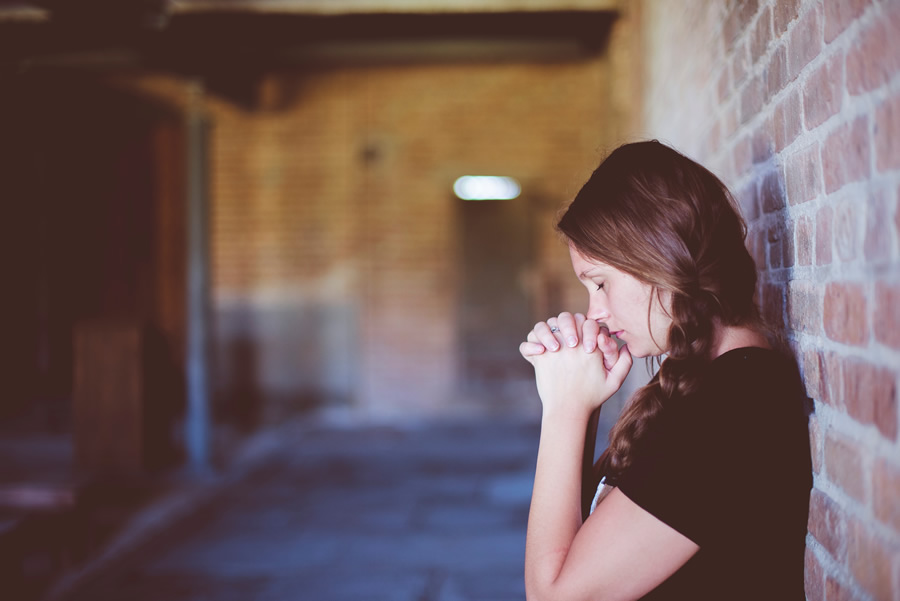
The Nine Grades of Prayer - 6th & 7th Grades
05-17-2020Weekly ReflectionJen Arnold, M.A. in Theology and CatecheticsThis week we are going to examine the 6th and 7th grades of prayer as developed by St. Teresa of Avila. Hopefully, you’ve been able to reap some fruit in your prayer life and have increased your desire for intimacy with God. As we go further along in this journey of exploration, remember to not be discouraged by how out of reach some of this may seem. Instead, approach the possibilities with a sense of wonder and awe. God is so good and has made amazing things available to each of us if we continue to desire them and seek Him out in all things.
6th Grade of Prayer – Prayer of Quiet
READ MORE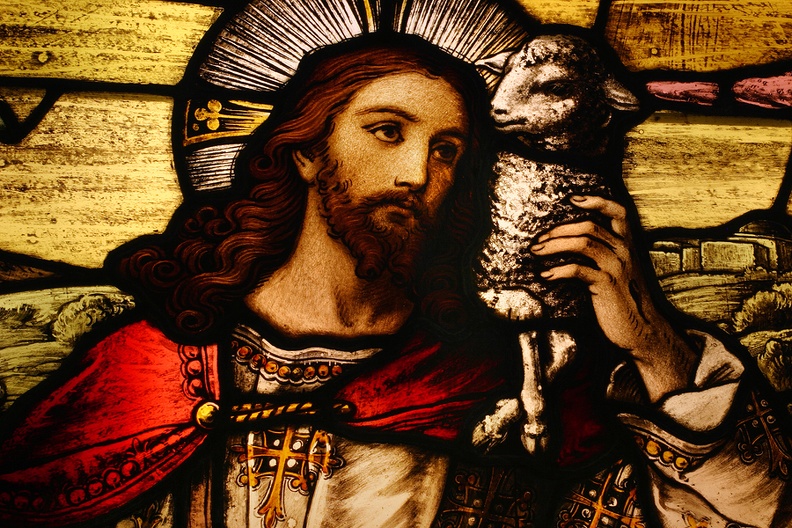
The Nine Grades of Prayer - The Dark Night of Sense & the 5th Grade
05-10-2020Weekly ReflectionJen Arnold, M.A. in Theology and CatecheticsOver the last two weeks we have examined the first four of the nine grades of prayer. Remember, in those first four grades, we are in control of the activity in our prayer life and the progress we make, with the help of God’s grace, of course. The last five grades of prayer are completely out of our control and are a means by which God comes into certain souls of His choosing to bring about a closer union with them. Whether or not any of us are chosen for such intimacy with God while here on earth is not meant to be discouraging, but rather, to make us all aware of what is possible when we pour our entire beings into an intimate relationship with God.
READ MORE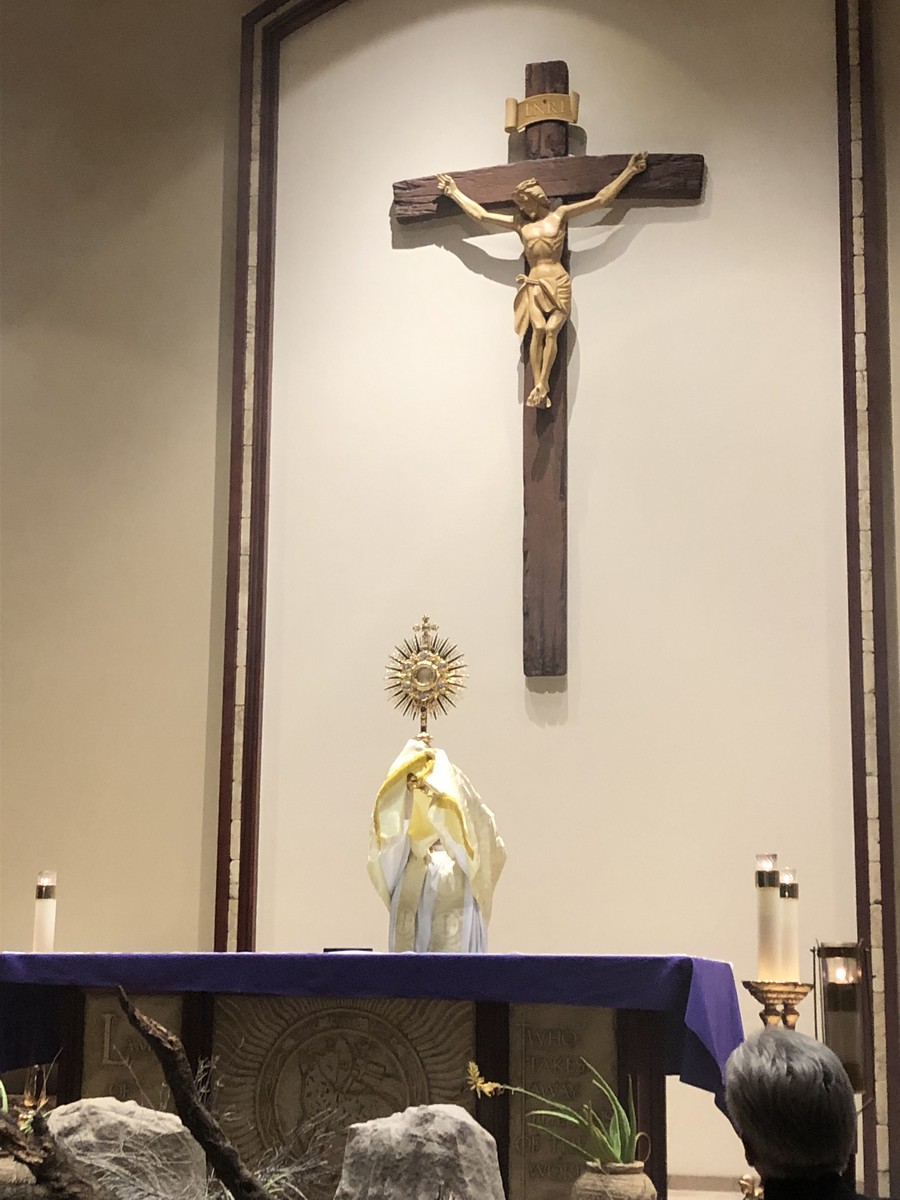
The Nine Grades of Prayer - 3rd and 4th Grades
05-03-2020Weekly ReflectionJen Arnold, M.A. in Theology and CatecheticsYou were hopefully able to find some opportunitiesto practice more meaningful verbal and meditativeprayer in the last week. Continue to keep comingback to those simpler forms throughout your prayerlife. This week, we will explore the 3rd and 4thgrades of prayer.
3rd Grade of Prayer – Affective PrayerThe majority of the development ofthis grade of prayer comes to us fromSt. Francis de Sales. If you are interested,his book, Introduction to the DevoutLife, is an excellent resource writtenspecifically to help lay people seek outholiness in their everyday lives.
READ MORE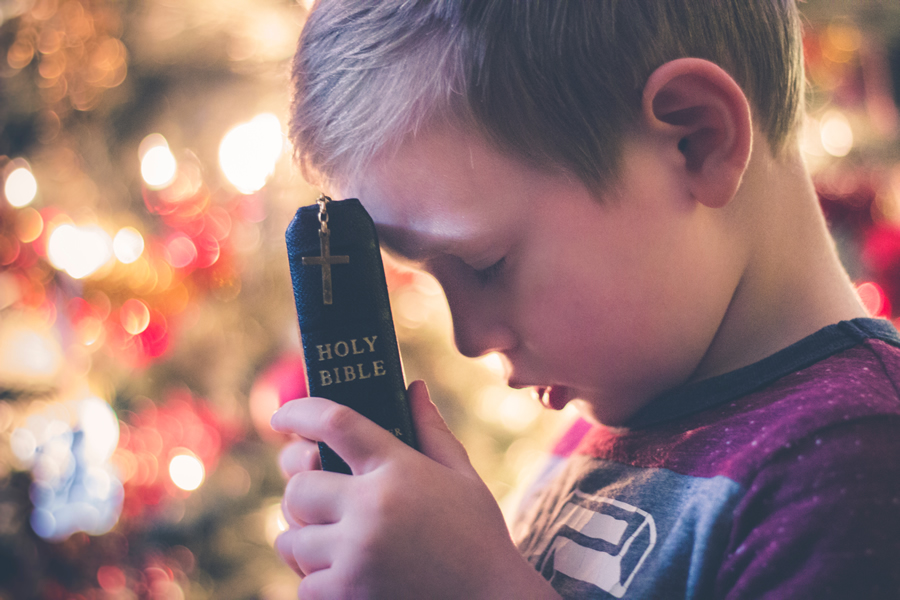
The Nine Grades of Prayer - 1st & 2nd Grades
04-26-2020Weekly ReflectionJen Arnold, M.A. in Theology and CatecheticsThis article is the first in a five-part series onwhat are known as the nine grades of prayer.These were primarily revealed to us by St. Teresaof Avila and we’ve learned more over time fromothers like St. Francis de Sales and St. John of theCross.
First, let’s begin with what prayer is in a generalsense. In the Catechism of the Catholic Church,paragraphs #2559-2565, we find an in-depthexamination of prayer. But essentially, it iscommunication with God. However, it is notsimply talking to God with words, rather it isjoining your heart to His in love and making thecommunication a loving dialogue between thosetwo hearts. Just as with any relationship, themore the loving dialogue flows, the deeper theunion becomes and the more intimate thecommunication. As we’ll learn, the nine grades ofprayer are the stages and types of prayer whichdraw a soul into deeper and deeper union with God.It is important to note that each grade is notexclusive. In other words, when you move fromone grade to the next, you are not done with allof the previous grades. You will ebb and flow asyou move between the grades and you willalways need to return to the foundational forms.It is also important to note that in grades onethrough four, the individual is the primary moverand in grades five through nine, God is the primarymover. What this means is that for the first fourgrades, you, as the prayer, are in control of yourfaculties and self-discipline to work your waythrough the grades. In doing so, you may merit,by God’s will, progression into the final fivegrades where you become passive and God worksin you. In the final five grades, the individual cannotdecide to turn it off or on, rather God decideshow and when He will commune with the heartand soul. Do not be overwhelmed or discouraged!We’ll begin at the beginning and we will discussall of this in more detail as we progress throughthe grades.
READ MORE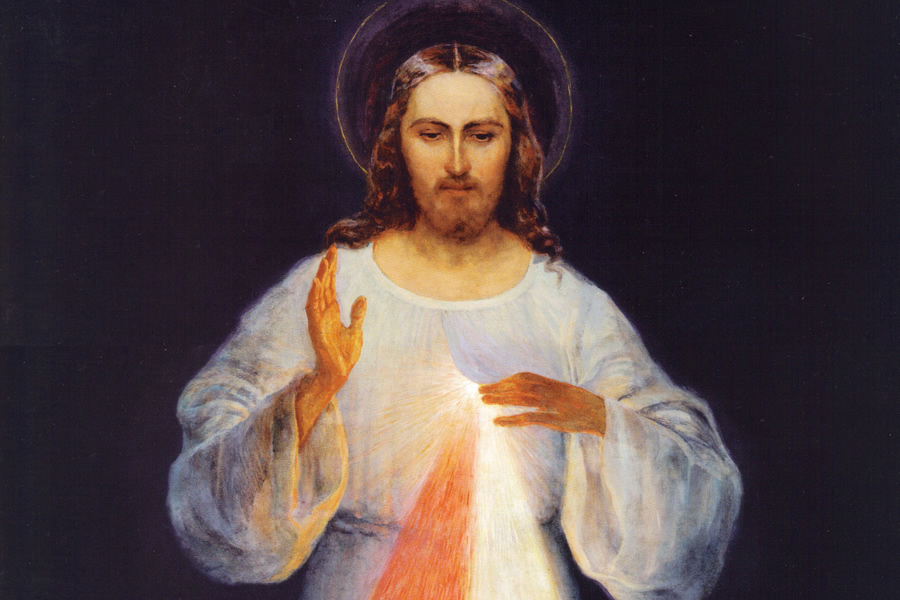
Divine Mercy - Practically Speaking
04-19-2020Weekly ReflectionJen Arnold, M.A. in Theology and CatecheticsToday we celebrate Divine Mercy Sunday. The infinite mercy of God is something so grand and awesome, that we have been blessed with a day on our liturgical calendar dedicated to meditating upon it. What exactly is Divine Mercy and how does it relate to us and our lives practically?
READ MORE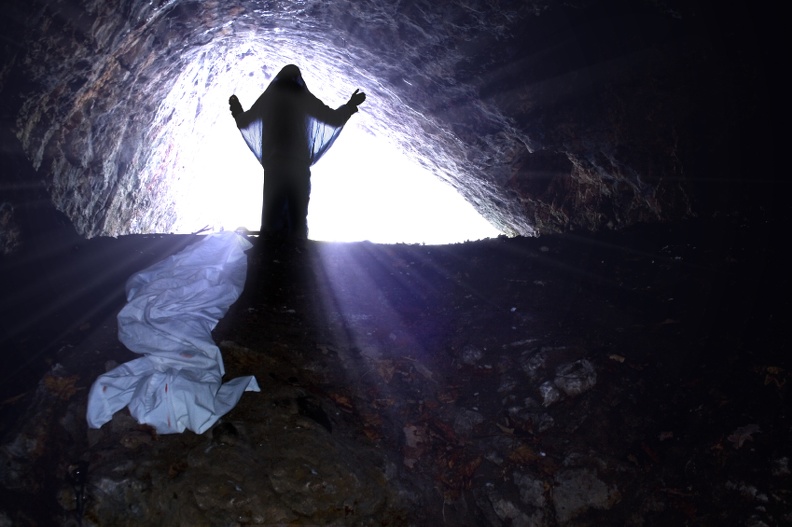
Mass Ad Orientem
04-12-2020Weekly ReflectionFr. Chad KingDear beloved parishioners of Corpus Christi, Easter blessings to you all! If you have been watching our live-streamed Masses, you will have noticed during the Holy Triduum liturgies, and now through the Easter season, that Fr. Rey and I are celebrating the Mass ad orientam, literally meaning “toward the East” or toward God, rather than toward the people. There are many reasons we have decided to do this at this time:
READ MORE
The Cross: Our Hope and Salvation
04-05-2020Weekly ReflectionJen Arnold, M.A. in Theology and CatecheticsNow that Lent is coming to an end and Easter is on the horizon, it is time to reflect on the cross as our hope and salvation. After the fall of Adam and Eve in the Garden of Eden, our intended permanent state of perfect holiness and perfect union with God disappeared which had catastrophic consequences for the rest of the generations of humanity that were to follow. You can read any book in the Bible and see that we have been sinning ever since Adam and Eve and things never turn out well until God steps in and does something about it. You can see the effects of sin all around you now, both in your own personal life and in the world at large around you. It’s amazing how good we humans are at messing up, even when our greatest desire may be to never sin again. In our human weakness, we have no ability to break out of the shackles of our sins without God’s help.
READ MORE